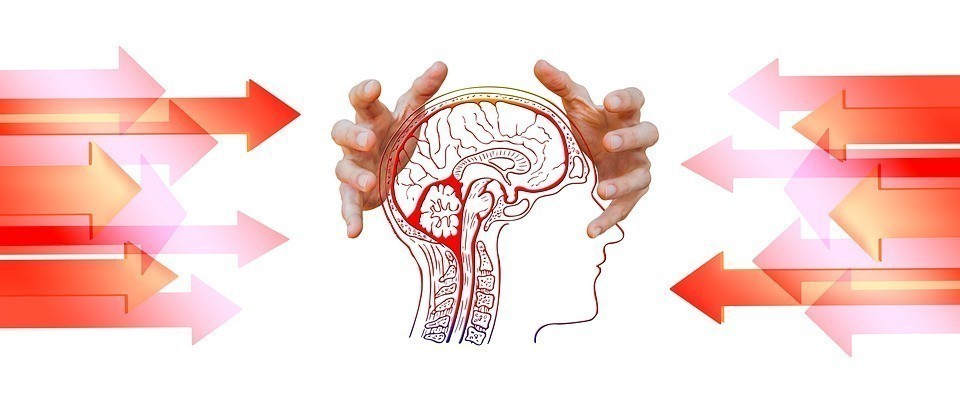Tips to comprehend fast English native speakers
Do you face difficulty in understanding an English movie or while having a conversation with a native speaker? If yes, then you’ll definitely find this blog helpful.
English native speakers are accustomed to their language just like we are habituated to our language. They have their peculiar style of pronunciation which at times becomes difficult to comprehend. However, little practice and following certain tips can make you a good listener.
Please note that first and foremost thing is that you need to be a good listener. There’s a difference between hearing and listening. The process of ‘hearing’ is when the words just pass by your ears and you don’t grab any details. On the contrary, ‘listening’ is when you focus on what is being said and try to understand all the details. So, here are few generic tips before getting started:
- Train your ears: You need to train your ears to catch the speed of the native English speakers. So, you need to practice listening to fast English. Take your time to listen to different conversations as you cannot understand it in a single day.
- Listen to the chunks: When we learn English, we learn words. But, the natives speak in chunks. So, you need to listen in chunks to understand the meaning.
- Do not overdo your practices: Listen to English conversations each day with at least two to three minutes in
- Do not follow the hints of your eyes: Many times, we try to understand others by noticing their gestures. However, while comprehending natives, you should only understand the language with your ears ignoring the hints given by the eyes.
Apart from these tips, there are some specific tips to understand the ‘fast’ English speakers. Let’s have a look at these:
1. Elision
The natives are comfortable with their language, so they tend to squash the words and they do not speak every single word clearly. They often combine two words and make it a single word so that they use fewer muscles in pronouncing the word. This process is termed as elision. Let’s have a look at some of the commonly used elisions:
- of
The natives speak words in a relaxed tone, so whenever ‘of’ appears after any word, they combine it with the previous word to form a single word. Let’s take few examples of lots of, cup of and sort of, which are pronounced as lotsa, cuppa and sorda respectively.
So, instead of saying ‘I saw lot of movies’ they’d say ‘I saw lotsa movies’. Similarly, instead of saying ‘Give me a cup of coffee’ they’d say ‘Gimme cuppa coffee’. In case of sort of, they do not use sorta and rather used sorda.
This is because the Americans pronounce ‘t’ as ‘dee’ if it appears between two vowel sounds. Here, in ‘sort of’ the letter ‘t’ lies between two ‘o’, so it is pronounced as ‘dee’ which makes ‘sort of’ as ‘sorda’. Instead of saying ‘This is the sort of dress that I’d wear’ they’d say ‘This is sorda dress I’d wear’.
- have
Just like of, the English speakers combine the words that contain have after them. Let’s take the case of could have, would have and must have, which becomes cudda, wouda and musta respectively. So, instead of saying ‘I could have done that’, a native speaker would say ‘I cudda done that’. Similarly instead of saying ‘You would have told me’ they’d say ‘You wouda told me’ and instead of ‘He must have gone there’, they’d say ‘He musta gone there’.
- to
Lots of words that are followed by ‘to’ are combined with it to form a unique word. Let’s take words like have to, got to, want to and going to which are amalgamated to form hafta, goda, wanna and gonna respectively. Again, you must have noticed that for ‘got to’ the natives use ‘goda’ as ‘t’ is coming between two ‘o’ and it is pronounced as ‘dee’. Instead of saying ‘I have to do this’ they’d say ‘I hafta do this’. Similarly, instead of saying ‘You got to be there’ they’d say ‘You goda be there’, and instead of saying ‘I want to do this’ they’d say ‘I wanna do this’ and instead of ‘I am going to travel’ they’d say ‘I gonna travel’.
- You
Words like could you and would you are combined to form kujyou and wujyou. So a sentence like ‘Could you pass that to me?’ will go like ‘Kujyou pass that to me?’ and a sentence like ‘Would you help me?’ will go like ‘Wujyou help me?’.
2. Relaxed muscles
The natives tend to be relaxed and they speak out words in a very relaxed tone. They speak alphabets and words in such a way that fewer movements of muscles are needed to speak. They do not stretch the facial muscles and rather try to keep the tongue and lip moment as minimum as possible.
- Minimum movement of lips
The natives speak out the alphabets giving minimum movement to the lips. So B is not pronounced as ‘Beee’ rather it is just ‘B’. Similarly, it’s not ‘Peee’ but just ‘P’ and ‘M’ is pronounced as ‘M’ and not ‘emm’, ‘mmm’ or ‘yum’. While speaking, you should feel the air coming out from the mouth. The natives don’t use strength while speaking.
- Minimum movement of the tongue
While speaking out the alphabets, the native speakers do not roll their tongue too much and rather they keep it relaxed. Alphabets ‘T’, ‘D’, ‘L’ and ‘R’ are pronounced in such a way that the tongue touches the teeth and has a minimum movement.
Conclusion
These were few tips to understand the fast English native speakers. Hopefully, after getting accustomed to these tips, you’ll be able to watch English movies and talk with the natives seamlessly.








Leave a comment